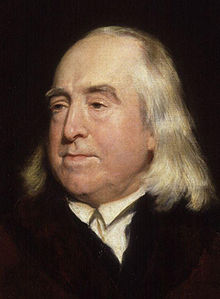Portal:Liberalism
The Liberalism portal
Liberalism is a political and moral philosophy based on the rights of the individual, liberty, consent of the governed, political equality, right to private property and equality before the law. Liberals espouse various and often mutually warring views depending on their understanding of these principles but generally support private property, market economies, individual rights (including civil rights and human rights), liberal democracy, secularism, rule of law, economic and political freedom, freedom of speech, freedom of the press, freedom of assembly, and freedom of religion, constitutional government and privacy rights. Liberalism is frequently cited as the dominant ideology of modern history.
Liberalism became a distinct movement in the Age of Enlightenment, gaining popularity among Western philosophers and economists. Liberalism sought to replace the norms of hereditary privilege, state religion, absolute monarchy, the divine right of kings and traditional conservatism with representative democracy, rule of law, and equality under the law. Liberals also ended mercantilist policies, royal monopolies, and other trade barriers, instead promoting free trade and marketization. Philosopher John Locke is often credited with founding liberalism as a distinct tradition based on the social contract, arguing that each man has a natural right to life, liberty and property, and governments must not violate these rights. While the British liberal tradition has emphasized expanding democracy, French liberalism has emphasized rejecting authoritarianism and is linked to nation-building. (Full article...)
Selected article -
Social justice is justice in relation to a fair balance in the distribution of wealth, opportunities, and privileges within a society where individuals' rights are recognized and protected. In Western and Asian cultures, the concept of social justice has often referred to the process of ensuring that individuals fulfill their societal roles and receive their due from society. In the current movements for social justice, the emphasis has been on the breaking of barriers for social mobility, the creation of safety nets, and economic justice.[excessive citations] Social justice assigns rights and duties in the institutions of society, which enables people to receive the basic benefits and burdens of cooperation. The relevant institutions often include taxation, social insurance, public health, public school, public services, labor law and regulation of markets, to ensure distribution of wealth, and equal opportunity.
Modernist interpretations that relate justice to a reciprocal relationship to society are mediated by differences in cultural traditions, some of which emphasize the individual responsibility toward society and others the equilibrium between access to power and its responsible use. Hence, social justice is invoked today while reinterpreting historical figures such as Bartolomé de las Casas, in philosophical debates about differences among human beings, in efforts for gender, ethnic, and social equality, for advocating justice for migrants, prisoners, the environment, and the physically and developmentally disabled. (Full article...)Selected biography -

Jeremy Bentham (/ˈbɛnθəm/; 4 February 1747/8 O.S. [15 February 1748 N.S.] – 6 June 1832) was an English philosopher, jurist, and social reformer regarded as the founder of modern utilitarianism.
Bentham defined as the "fundamental axiom" of his philosophy the principle that "it is the greatest happiness of the greatest number that is the measure of right and wrong." He became a leading theorist in Anglo-American philosophy of law, and a political radical whose ideas influenced the development of welfarism. He advocated individual and economic freedoms, the separation of church and state, freedom of expression, equal rights for women, the right to divorce, and (in an unpublished essay) the decriminalising of homosexual acts. He called for the abolition of slavery, capital punishment, and physical punishment, including that of children. He has also become known as an early advocate of animal rights. Though strongly in favour of the extension of individual legal rights, he opposed the idea of natural law and natural rights (both of which are considered "divine" or "God-given" in origin), calling them "nonsense upon stilts". Bentham was also a sharp critic of legal fictions. (Full article...)List of selected biographies
|
|---|
Selected quote
General images
Subcategories
Related portals
WikiProjects
Topics
Recognized content
Associated Wikimedia
The following Wikimedia Foundation sister projects provide more on this subject:
-
Commons
Free media repository -
Wikibooks
Free textbooks and manuals -
Wikidata
Free knowledge base -
Wikinews
Free-content news -
Wikiquote
Collection of quotations -
Wikisource
Free-content library -
Wikiversity
Free learning tools -
Wiktionary
Dictionary and thesaurus


























































